©Bailing Out Benji 2022
All research and information was done by Bailing Out Benji and must be cited as such when shared or quoted!
To view the rest of our research, click here.
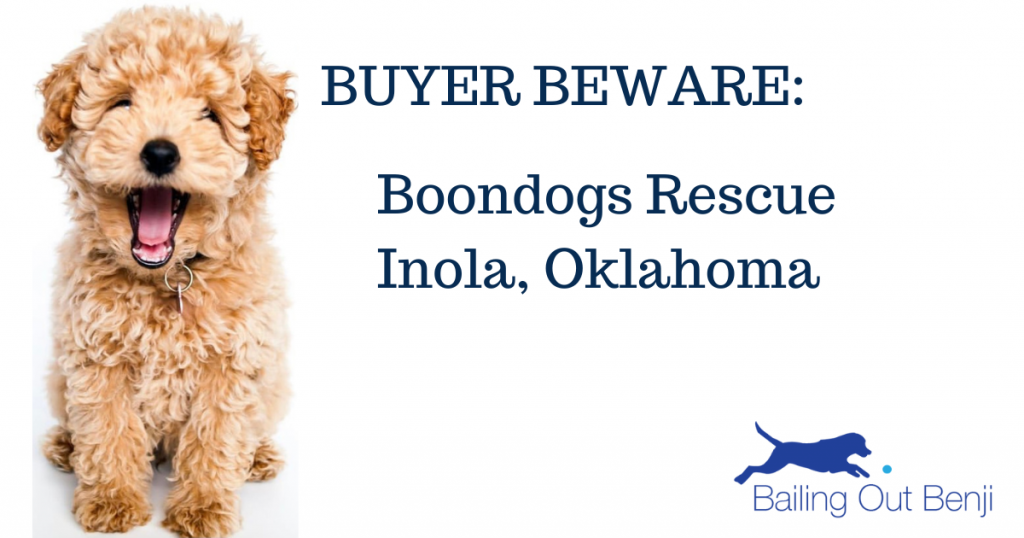
In recent years, there has been a massive movement across the country calling for cities and states to pass legislation banning the retail sale of dogs, cats and rabbits in pet stores from commercial breeders (puppy mills). This effort was started to end the puppy mill to pet store pipeline with the goal of causing the largest and worst puppy mills in the midwest to downsize and close. Once these laws and ordinances are passed, former puppy-selling stores must now get their puppies, kittens and sometimes rabbits from rescues and shelters to help the homeless animals in their communities, as opposed to aiding in the pet overpopulation problem. To date, more than 420 localities have passed their version of this ordinance, as well as six states.
Bailing Out Benji’s role in passing these ordinances is to provide our research to local advocates and policy makers so they can not only see what is happening inside of puppy mills, but they can see data on how local puppy stores are playing a key role in keeping the industry alive. Because of growing public awareness and the passing of these ordinances, it has become a lot harder for puppy mills and breeders with violations to sell through stores. This caused the birth of the nationwide puppy-laundering scheme through the creation of sham rescues.
Sham rescues are now being created by USDA dog breeders and puppy brokers in order to falsely label commercially bred puppies as “rescues” in order to still sell puppies through retail stores in communities where it has been outlawed. These breeding facilities are getting rescue names and business licenses, even sometimes taking the additional step to become an official 501c3 charity, all with the intent of selling mislabeled puppies to stores. Litters of puppies are often split up in transport, half being sold as rescues and the other half being sold as commercially bred puppies, ignoring the fact that they were born at the same place. This is a new trend in the commercial dog breeding world, one that our nonprofit organization is leading the way on investigating and ending.
Our investigations into two sham rescues in Iowa ( Hobo K9 Rescue and Rescue Pets Iowa ) led to the Iowa Attorney General shutting them down, and our investigation into a sham Missouri rescue ( Pet Connect Rescue ) led to lawsuits and the passage of a stronger statewide bill in California. Other investigations that we have done (Dogs to the Rescue Ohio) have led to major news networks covering the story. We are also beyond honored that our research was used in Sony’s new investigative series “Smoke Screen: Puppy Kingpin“, a podcast that does a deep dive into the sham rescue world.
Our work is never done, it seems, as every time we help shut down one of these fake rescues, another one pops up.
Interestingly enough, we didn’t uncover this latest sham rescue through government health records.
We learned it through a press release that the owner of Petland Oklahoma City and Petland Tulsa put out themselves.
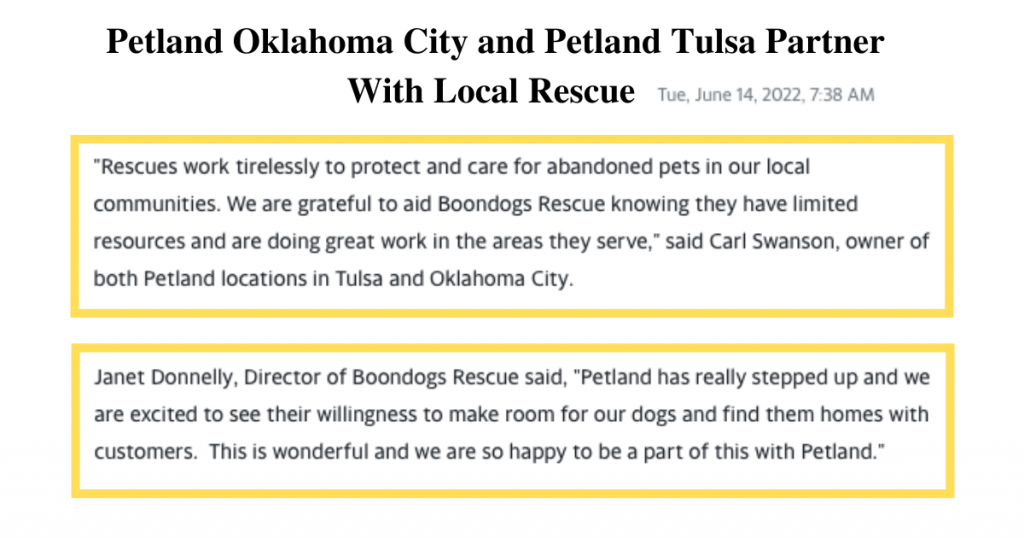
On June 14, 2022 Petland put out a press release to announce that they “are excited to announce their new partnership with Oklahoma rescue, Boondogs Rescue, to support local adoptions.” To be clear, Petland would still be offering commercially bred puppies for sale but, according to this press release, they will now be offering space to a local rescue.
Except that local rescue was founded by a USDA commercial dog breeder in Oklahoma. A dog breeder that also sells puppies to pet stores across the country. Janet Donnelly of Inola, Oklahoma is the owner of both her breeding facility and the newly formed Boondogs Rescue.
A quick public records request showed us that the addresses for the ‘rescue’ and the commercial dog breeding facility were one and the same. We have redacted the private addresses for the sake of this article.
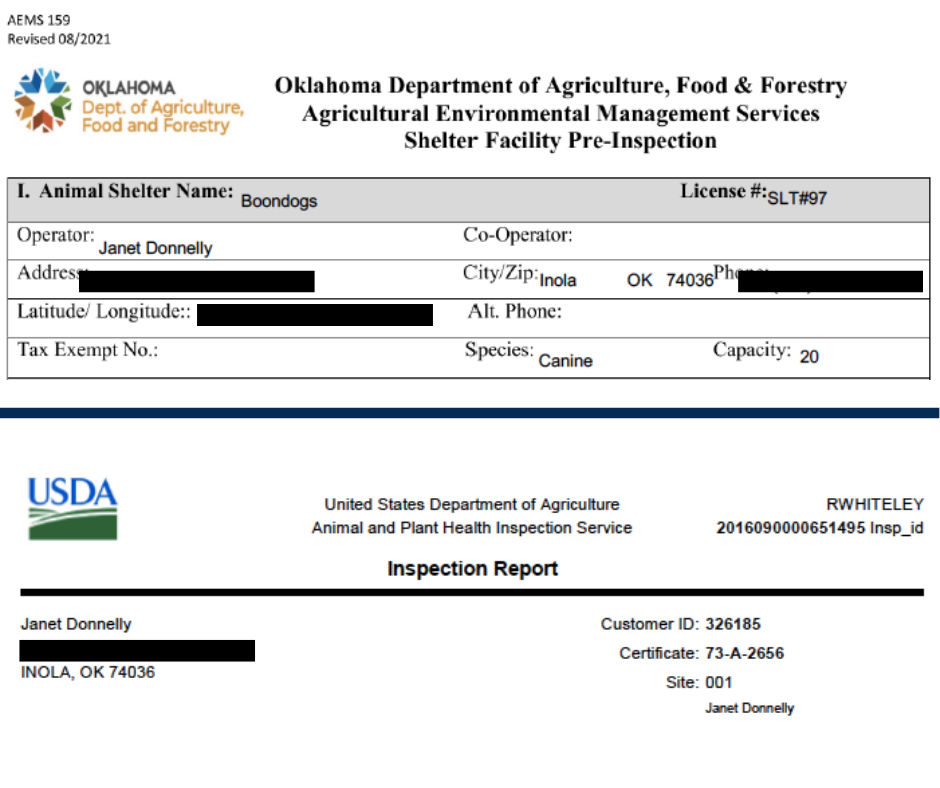
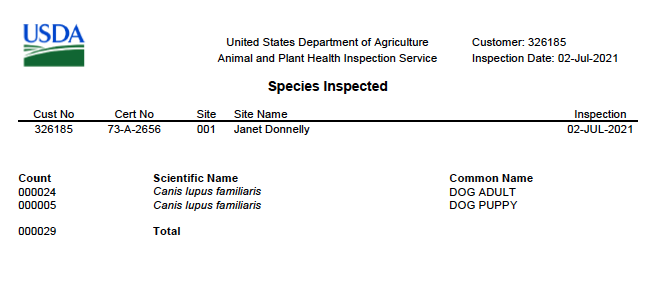
While neither Tulsa, OK or Oklahoma City, OK have humane pet store ordinances yet, Petland’s announcement and partnership with this sham rescue seemed very important to point out. To date we have never seen a Petland store use sham rescues or be an active part of the puppy laundering scheme. If you would like to see which breeders Petland Oklahoma City and Petland Tulsa obtain animals from, you can click here.
Historically, when ordinances have been passed, Petland has either complied and stopped selling puppies or they relocate to another state. Carl Swanson, owner of both Petland Oklahoma locations, had his Illinois stores affected by the local and state ordinances that were passed.
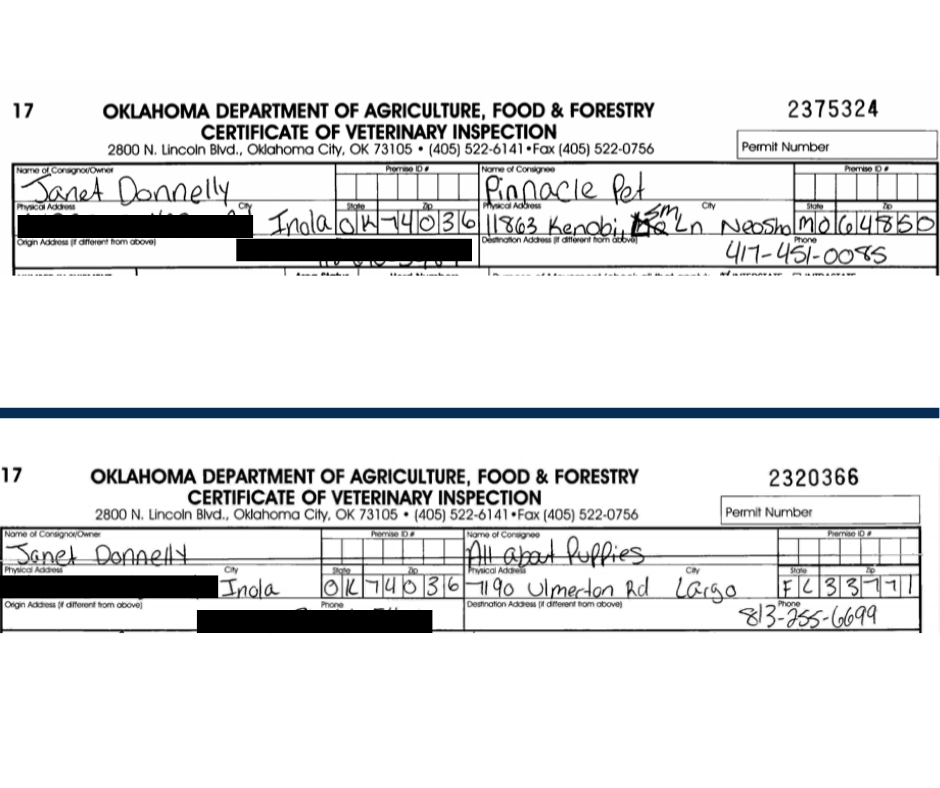
At this time, Boondogs Rescue is not an active 501c3, so no donations are tax deductible. They have solely taken steps to become an Oklahoma state licensed rescue. In the aforementioned press release, Petland did say that “The relationship with Boondogs Rescue began during the onset of the COVID-19 pandemic when Oklahoma Petland stores donated truckloads of dog food to Boondogs Rescue. Both organizations are grateful for the opportunity to further develop the relationship.” According to the documents we obtained from the state of Oklahoma, Donnelly first applied to be a rescue on August 4, 2021- more than a year and a half after the start of the pandemic.
We are currently awaiting another public records request to determine where Boondogs Rescue is obtaining their dogs, beyond Donnelly’s own breeding facility.
Meanwhile, the ‘rescue’ dogs have already made their way to the social media channels of Petland Tulsa.
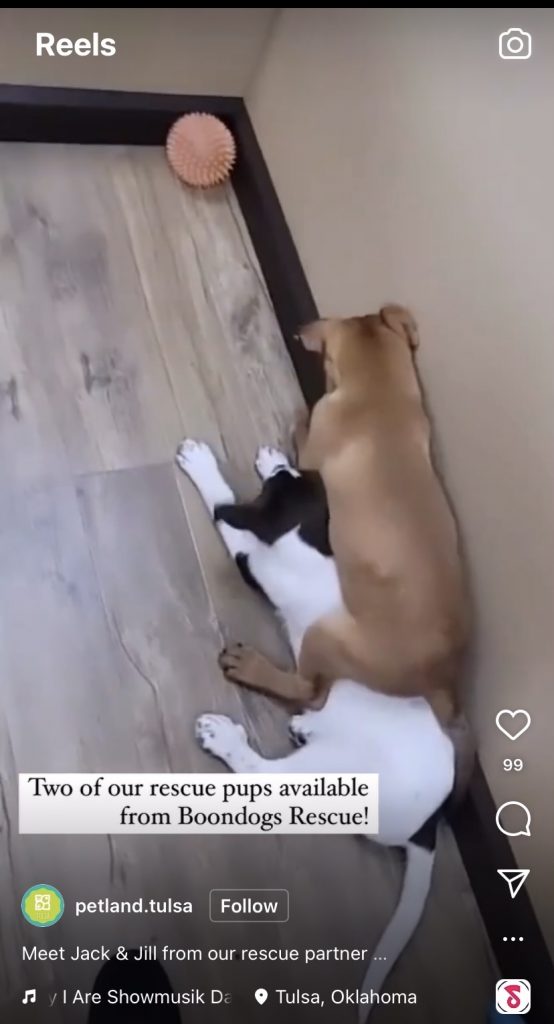
The Nationwide Puppy Laundering Scheme has affected thousands of customers who thought that they were adopting puppies from legitimate rescues. Many lawsuits have happened in the past and even more are coming down the line. This type of operation is the definition of consumer and charity fraud.
If you are a customer of Petland Tulsa or Petland Oklahoma and you believe that you purchased a “rescue puppy” and want to know more about where it was born, please feel free to email us below. We also suggest filing a complaint with the Oklahoma Attorney General about the potential mislabeling of your “rescue” puppy.
